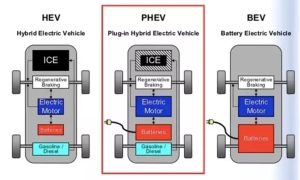In today’s rapidly evolving world, the importance of adopting eco-friendly practices has become increasingly evident. As climate change and environmental concerns continue to take center stage, businesses have a crucial role in mitigating their impact on the planet. One area where companies can make a significant positive impact is by transitioning from traditional paper-based pay stubs to electronic pay stub, also known as e-pay stubs.
This simple shift in payroll management can lead to substantial environmental benefits and demonstrate a commitment to sustainability.
The Environmental Toll of Paper Pay Stubs
Traditional paper pay stubs have long been a standard part of payroll processing for businesses around the globe. While seemingly innocuous, the environmental consequences of paper pay stubs can be quite significant. Consider the following ecological toll associated with paper-based payroll.
- Deforestation
The paper industry is one of the leading causes of deforestation worldwide. Millions of trees are cut down each year to produce paper products, including pay stubs. This has devastating effects on biodiversity and contributes to climate change.
- Greenhouse Gas Emissions
The process of manufacturing paper involves significant energy consumption and emits greenhouse gasses into the atmosphere. Moreover, paper transportation and disposal also contribute to the carbon footprint of paper-based payroll systems.
- Waste Generation
Paper waste is a considerable environmental challenge. Pay stubs and other paper documents often end up in landfills, where they decompose and release methane, a potent greenhouse gas.
- Water Consumption
Paper-making requires substantial amounts of water, which can strain local water resources and harm aquatic ecosystems.
Embracing E-Pay Stubs: The Eco-Friendly Solution
Transitioning from traditional paper pay stubs to e-pay stubs presents a compelling solution to reduce the environmental impact of payroll processing. The adoption of e-pay stubs offers numerous eco-friendly benefits:
- Conservation of Trees
By eliminating the need for paper, e-pay stubs directly contribute to the conservation of forests. Fewer trees are cut down, helping to preserve biodiversity and the planet’s natural carbon sinks.
- Energy Efficiency
E-pay stubs require minimal energy, reducing the overall carbon footprint compared to the resource-intensive process of producing paper pay stubs.
- Waste Reduction
With e-pay stubs, no paper waste is generated, reducing the burden on landfills and lowering methane emissions. Additionally, businesses can reduce their need for physical storage space for paper documents.
- Water Preservation
The production of e-pay stubs consumes significantly less water than traditional paper pay stubs, helping conserve this precious resource.
- Cost Savings
Implementing e-pay stubs benefits the environment and presents cost savings for businesses. Printing, paper, and postage expenses are significantly reduced or eliminated, providing a financial incentive for going green.
Advantages for Businesses
Embracing e-pay stubs not only benefits the environment but also provides several advantages for businesses:
- Enhanced Efficiency
E-pay stubs streamline the payroll process, reducing administrative tasks and paperwork. HR departments can focus on more strategic initiatives, improving overall efficiency.
- Increased Security
E-pay stubs offer enhanced security compared to physical documents. Encryption and password protection ensure that sensitive employee information remains confidential.
- Easy Access and Organization
Employees can access their e-pay stubs online, anytime, anywhere. This accessibility promotes better organization and reduces the likelihood of lost or misplaced documents.
- Eco-Friendly Image
Adopting e-pay stubs sends a powerful message to employees, customers, and stakeholders about the company’s commitment to environmental responsibility and sustainability.
Making the Transition
To successfully transition from paper pay stubs to e-pay stubs, businesses should consider the following steps:
- Choose a Reliable Payroll Service Provider
Select a reputable payroll service provider that offers e-pay stub services. Ensure that the provider maintains strict security protocols to protect sensitive employee data.
- Employee Education
Communicate the transition plan to employees and provide clear instructions on accessing and managing their e-pay stubs. Address any concerns or questions they may have about the new system.
- Opt-Out Option
While e-pay stubs are generally well-received, some employees may have personal reasons for preferring paper documents. Offer an opt-out option for those who genuinely require physical pay stubs.
- Monitor and Evaluate
Regularly monitor the effectiveness of the e-pay stub system and gather feedback from employees. Use this feedback to make improvements and further streamline the payroll process.
Adopting e-pay stubs is a practical and effective way for businesses to embrace eco-friendly practices and contribute to environmental conservation. Companies can significantly minimize their environmental impact by reducing paper consumption, energy usage, waste generation, and water consumption.
The shift to e-pay stubs provides business benefits such as increased efficiency, improved security, and cost savings. By taking this simple yet powerful step, businesses can play a vital role in safeguarding the planet for future generations while also promoting a positive and sustainable image in the eyes of their employees, customers, and stakeholders.
































































